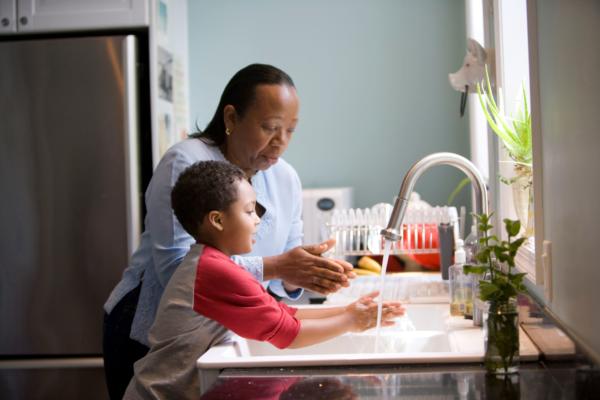Social distancing has become the norm in the last few weeks. And with it, schools, workplaces, friendship groups and churches have moved online, embracing video conferencing like never before. Zoom alone has seen its daily users rise from 10 million to over 200 million.
For so many of us this technology is a gift. The connection it brings us is precious. However, for those caring for vulnerable children, it can also herald new challenges.
For the wonderful 6-year-old entrusted to our family, this looks like almost uncontainable excitement in anticipation of a video call. It promises to connect him with friends that he’s missing, so of course he’s excited. The call usually begins with a few minutes of wild noises, frantic pulling on me as I sit alongside him, some frustrated shouts at his siblings who are nowhere near, followed by a disappearance from the screen altogether as he leaves the room. He often only returns when the call is finished.
So, what is so difficult?
Every child who is or has been in care has experienced loss. Therefore, seeing the faces of people you’re missing on a screen can highlight those feelings of loss, or trigger other emotions that are equally hard to understand, never mind process.
For children who have experienced trauma, processing and regulating emotions can be hugely challenging. That is why feelings are often communicated differently. With things like unusual reactions or behaviour. This is the case in many contexts, but I can now add video calls to my list.
There’s a few other reasons video calls are tricky for my 6-year-old, along with many children who have experienced loss or trauma.
How many of us (be honest) have found ourselves more aware of our appearance as we participate in a video call? A video call means we get to see not only those who we’re talking to, but also ourselves. All. The. Time.
One of the most powerful feelings that a child who has experienced trauma lives with consistently is shame; the belief that they (not just some of the things they do) are somehow wrong. For children and young people with poor self-esteem, that little box with their face in can exacerbate these feelings and make the experience really challenging.
And then there’s all the new social cues to learn. A video call is a far more intense experience than being in the same room. Where do you look is a hard enough question for those with a trauma background, when making or maintaining eye contact can trigger feelings of being threatened or can simply feel overwhelming. Now it’s made even more difficult by the numerous faces on the screen and no idea where they are looking.
For many of us, learning how to do church or home groups, class meetings or family gatherings on Zoom has been full of the unknown. It has not been without the occasional challenge. I imagine it’s safe to say that all of us have experience a change in routine.
So many children who have experienced trauma need routine. They need the familiarity of understanding what’s happening, in what order and with who, and this can help them to manage feelings of fear that can be triggered by the unknown. In these incredibly uncertain times, many children are experiencing a heightened sense of these feelings. A lot of this loss of routine feels centred around things like video conferences. To cope with the fear that the unfamiliar creates, not engaging with it at all may be their way of coping.
Given all this, it’s understandable that the well-intentioned invitation to join an online family quiz night or children’s group gathering can be difficult for fostered or adopted children and their families. For some children it can even be perceived as a threat. It gives a window into different family relationships or tensions. It comes with all this pressure to perform well, or risks amplifying feelings of shame.
For parents or carers it can also raise questions around security. Who’s going to be on the call? What does safeguarding look like in this context? What if someone screenshots the call and posts the picture on social media?
This doesn’t mean that vulnerable children and their families can’t or won’t be able to access anything in this season. It doesn’t mean you should stop inviting them to anything. This doesn’t mean we should feel guilty for trying to get together across screens.
It does mean taking time to ask kindly what support might look like for children who have experienced trauma, and the families caring for them. And the best way to find out is through conversation. Take time to talk to them individually and consider what the challenges are and if – together – you can find a way through.










